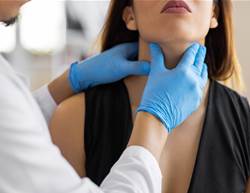Pre-pandemic, developing congestion and a runny nose would make most people assume they’re dealing with allergies. But now that COVID-19—and the typically more mild Omicron variant—is in the mix, it’s understandable to be confused. Are your symptoms due to allergies or COVID?
Unfortunately, it’s not always easy to figure out the answer, especially this season when Omicron is still widely circulating, and Omicron symptoms don’t stand out quite so much. “Due to some combination of biologic properties, vaccination, and immunity from previous infection, a lot of people with Omicron may develop a runny nose and just think it’s allergies,” says Dr Thomas Russo. “There can be an overlap in symptoms.”
Of course, there’s a big difference in having allergies and COVID-19. So, how can you tell if you’re dealing with allergies or COVID? Doctors say there are a few clues.
What are the symptoms of allergies vs. COVID?
Seasonal allergies start to pick up around this time of year, and they come with a certain set of symptoms. According to the Australian Society of Clinical Immunology and Allergy (ASCIA), those usually include:
- Runny nose
- Itchy eyes, mouth, or skin
- Sneezing
- Stuffy nose due to blockage or congestion
Of course, there is some overlap with symptoms of COVID-19. According to the Australian Government Health Department, those can include:
- Fever or chills
- Cough
- Shortness of breath or difficulty breathing
- Fatigue
- Muscle or body aches
- Headache
- New loss of taste or smell
- Sore throat
- Congestion or runny nose
- Nausea or vomiting
- Diarrhea
The symptoms of the Omicron variant of COVID-19, which is the main variant circulating in Australia, are slightly different. A CDC report released in December found that people with Omicron tend to have the following symptoms:
- Cough
- Fatigue
- Congestion
- Runny nose
Again, there’s overlap and it can be confusing. “COVID-19 and allergies both can cause nasal congestion, runny nose, cough and fatigue,” points out Dr Kara Wada, an allergist and immunologist.
How to tell the difference between allergies and COVID
If you’re a regular allergy sufferer, you probably have at least some idea of what is normal for you when allergy season strikes, says Dr William Schaffner, an infectious disease specialist. Still, it’s understandable to have some questions.
“The symptoms of allergies frequently involve the upper respiratory tract—above the neck,” Dr Schaffner says. They also tend to coincide with trees budding and flowers blooming, he points out.
But there are certain symptoms that should give you a healthy suspicion for COVID-19. “Although everyone with COVID does not have a fever, if you have a fever, it’s not allergies,” Dr Schaffner says. “It’s going to be an infection, whether it’s COVID, the flu, or some other virus.”
You can also get gastrointestinal symptoms with COVID-19 that you wouldn’t get with allergies, Dr Wada says. “Allergy is more likely to cause itching, watery red eyes, and more prominent sneezing,” she says.
A cough and chest congestion are also more likely to be symptoms of COVID-19, Dr Schaffner says. “Chest symptoms related to allergies are more along the lines of difficulty breathing, particularly when exhaling,” he says.
Sneezing isn’t common with COVID “but it's much more common with allergies,” says Dr Neil Bhattacharyya, ear, nose, and throat specialist.
And, while it’s possible to get a sore throat and some loss of taste and smell with allergies, Dr Russo says these are not usually as intense as they are with COVID-19 and tend to come on more gradually with allergies vs. COVID.
Dr Bhattacharyya recommends considering the course of your illness, too. “COVID will come on relatively acutely while allergies will wax and wane, depending on your exposure to allergens,” he says.
If you’re not sure what’s going on or if you think there’s a chance you could have COVID-19, experts say it’s important to test yourself for the virus. “At the end of the day, people really won’t know for sure unless they take a test,” Dr Russo says.
When to call your doctor
If you test positive for COVID-19 and you’re at high risk for complications from the virus, Dr Russo recommends calling your doctor. “You may be a candidate for certain therapies that would minimize the chances that your illness will evolve into a bad outcome,” he says.
And, if you’re not considered high risk for severe COVID but you develop symptoms like shortness of breath, trouble breathing, chest pain, confusion, trouble staying awake, and pale, gray, or blue-colored skin, lips, or nails, the CDC says that you’ll want to seek emergency medical care ASAP.
If you’ve tested negative for COVID-19 but your symptoms are making you uncomfortable or even interfering with your daily life, Dr Bhattacharyya says you’ll want to make an appointment with your doctor to discuss if you may be suffering from allergies and the right allergy treatment for you. “When your quality of life is being impacted—you’re having trouble sleeping or you can't exercise because you're so congested, it's time to talk to your doctor,” he says.
Again, if you’re not sure what’s going on with your health, it’s important to take a COVID-19 test for the just in case. “Not only could it have implications for you, but it could impact those around you,” Dr Russo says. “If you have allergies, you can go to work. COVID…not so much.”
This article is accurate as of press time. However, as the COVID-19 pandemic rapidly evolves and the scientific community’s understanding of the novel coronavirus develops, some of the information may have changed since it was last updated. While we aim to keep all of our stories up to date, please visit online resources provided by the WHO, and your state health department to stay informed on the latest news. Always talk to your doctor for professional medical advice.






.png&h=193&w=250&c=1&s=1)
.png&h=193&w=250&c=1&s=1)


